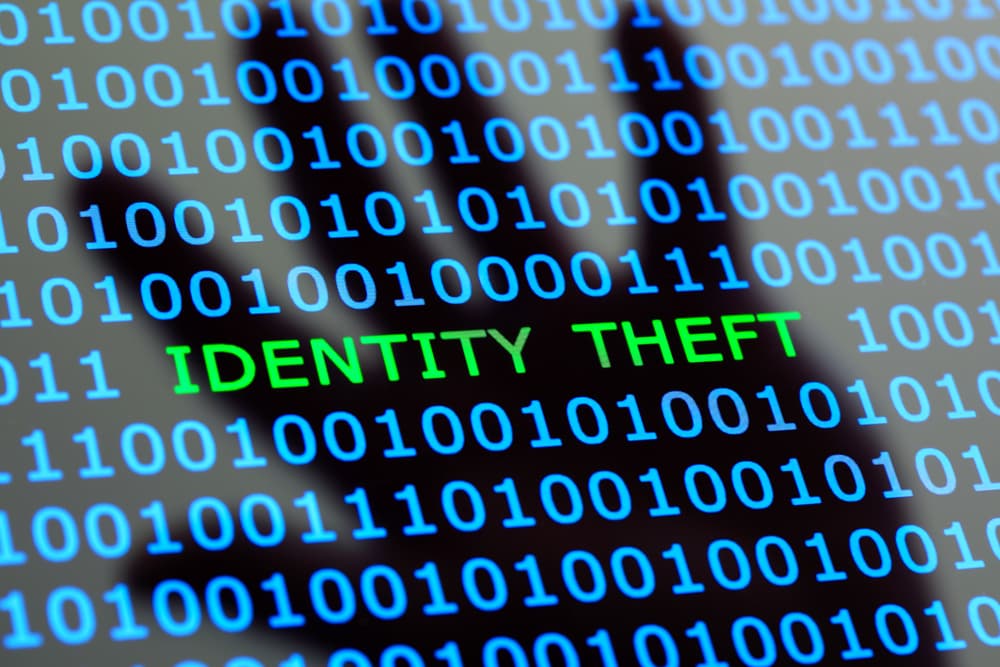Identity theft is a serious crime that can have far-reaching consequences for your financial well-being, including significant damage to your credit score.
When an identity thief steals your personal information and uses it to open fraudulent accounts or make unauthorized purchases, it can wreak havoc on your credit report and make it difficult to secure financing, rent an apartment, or even get a job.
In this blog, we'll explore the ways that identity theft can impact your credit score, as well as steps you can take to protect yourself and minimize the damage if you become a victim.
Understanding Identity Theft

Identity theft occurs when someone uses your personal information, such as your name, Social Security number, or credit card number, without your permission to commit fraud or other crimes.
This can include opening new credit accounts in your name, making unauthorized purchases on your existing accounts, or even filing fraudulent tax returns to claim your refund.
Identity thieves can obtain your personal information in a variety of ways, including:
- Stealing your wallet or purse containing your identification and credit cards
- Hacking into your online accounts or computer to steal your personal information
- Tricking you into revealing your personal information through phishing scams or fake websites
- Stealing your mail or digging through your trash to find discarded credit card offers or bank statements
Once an identity thief has your personal information, they can use it to wreak havoc on your financial life, including damaging your credit score.
How Identity Theft Can Hurt Your Credit Score
Your credit score is a three-digit number that reflects your creditworthiness and is used by lenders, landlords, and other creditors to evaluate your financial responsibility.
A high credit score can make it easier to secure financing, rent an apartment, and even get a job, while a low credit score can make it more difficult and expensive to access these opportunities.
Identity theft can impact your credit score in several ways, including:
Fraudulent Accounts
One of the most common ways that identity theft can impact your credit score is through the opening of fraudulent accounts in your name.
When an identity thief uses your personal information to open a new credit card, take out a loan, or even rent an apartment, these accounts will appear on your credit report as if you had opened them yourself.
If the identity thief racks up large balances or fails to make payments on these fraudulent accounts, it can significantly damage your credit score.
Late payments, high balances, and collections accounts can all have a negative impact on your credit score, making it more difficult to secure financing or other credit opportunities in the future.
Unauthorized Transactions
Even if an identity thief doesn't open new accounts in your name, they can still damage your credit score by making unauthorized transactions on your existing accounts.
This can include making purchases on your credit card, withdrawing money from your bank account, or even writing checks in your name.
If these unauthorized transactions result in missed payments, high balances, or overdrafts on your accounts, it can hurt your credit score. Payment history and credit utilization (the amount of credit you're using compared to your credit limit) are two of the biggest factors that influence your credit score.
Errors on Your Credit Report
In some cases, identity theft can lead to errors on your credit report that can damage your credit score. For example, if an identity thief opens a fraudulent account in your name and the creditor reports the account to the credit bureaus, it may appear on your credit report as a legitimate account, even if you had nothing to do with it.
Similarly, if an identity thief makes unauthorized transactions on your accounts and the creditor reports these transactions to the credit bureaus, they may appear on your credit report as legitimate transactions, even if you didn't make them.
These errors on your credit report can be difficult to remove and can significantly damage your credit score if left unaddressed.
Protecting Yourself From Identity Theft
Identity theft can harm your credit score.
To protect yourself and minimize your risk of becoming a victim:
- Monitor your credit report regularly and report any suspicious activity immediately
- Use strong, unique passwords for all of your online accounts and enable two-factor authentication when possible
- Be cautious about sharing your personal information online or over the phone, especially if you didn't initiate the contact
- Shred or destroy any documents containing personal information before throwing them away
- Place a fraud alert or credit freeze on your credit report to make it more difficult for identity thieves to open accounts in your name
If you do become a victim of identity theft, act quickly to minimize the damage to your credit score:
- Contact the creditors or financial institutions associated with the fraudulent accounts or transactions and inform them of the situation
- File a report with the Federal Trade Commission (FTC) and your local police department
- Place a fraud alert on your credit report to notify creditors that they should take extra steps to verify your identity before opening new accounts in your name
- Consider placing a credit freeze on your credit report to prevent new accounts from being opened in your name without your permission
- Work with the credit bureaus to remove any fraudulent accounts or errors from your credit report
The Importance of Credit Monitoring
One of the most effective ways to protect yourself from identity theft and minimize its impact on your credit score is to monitor your credit report regularly.
By keeping a close eye on your credit report, you can quickly identify any suspicious activity or errors and take steps to address them before they cause significant damage to your credit score.
To monitor your credit report:
- Request a free copy of your credit report from each of the three major credit bureaus (Equifax, Experian, and TransUnion) at AnnualCreditReport.com
- Sign up for a credit monitoring service that alerts you to any changes or suspicious activity on your credit report
- Regularly review your credit card and bank statements for any unauthorized transactions or charges
If you do notice any suspicious activity or errors on your credit report, act quickly to address them. This may involve contacting the creditor or financial institution associated with the account or transaction, filing a dispute with the credit bureaus, or even seeking legal assistance if necessary.
The Role of Credit Repair

If you already became a victim of identity theft and your credit score was damaged as a result, you may wonder what you can do to repair your credit.
There's no quick fix for a damaged credit score, but you can improve your credit over time.
One option is to work with a credit repair company that specializes in helping individuals improve their credit scores. These companies can identify and dispute any errors or fraudulent accounts on your credit report, as well as provide guidance on how to build positive credit habits going forward.
Another option is to work on improving your credit on your own by:
Paying Your Bills on Time and in Full
One of the most important things you can do to improve your credit score after identity theft is to consistently pay all of your bills on time and in full each month. Payment history is the single biggest factor that influences your credit score, accounting for about 35% of your FICO score.
Late payments, missed payments, and collections accounts can all have a significant negative impact on your credit score. Even a single late payment can cause your score to drop by dozens of points, and the longer a bill goes unpaid, the more damage it can do to your credit.
To avoid late payments and protect your credit score, make sure to:
- Set up automatic payments or reminders to ensure that you never miss a due date
- Pay more than the minimum amount due each month to pay down your balances faster
- Contact your creditors immediately if you're having trouble making payments to discuss hardship programs or payment plans
By consistently paying your bills on time and in full, you can demonstrate to creditors that you are a responsible borrower and help improve your credit score over time.
Keeping Your Credit Card Balances Low
Another important factor in your credit score is your credit utilization ratio, which is the amount of credit you're using compared to your total credit limit. The lower your credit utilization ratio, the better it is for your credit score.
Ideally, you should aim to keep your credit card balances below 30% of your total credit limit. So, if you have a credit card with a $10,000 limit, you should try to keep your balance below $3,000 at all times.
If you're struggling to keep your credit card balances low, consider:
- Paying down your balances as quickly as possible, even if it means making more than the minimum payment each month
- Asking your creditors for a credit limit increase which can lower your credit utilization ratio without requiring you to pay down your balances
- Avoiding using your credit cards for large purchases or emergencies, and instead saving up for these expenses in advance
By keeping your credit card balances low and your credit utilization ratio in check, you can demonstrate to creditors that you are a responsible borrower and help improve your credit score over time.
Dispute Errors and Fraudulent Accounts
If someone stole your identity, errors or fraudulent accounts on your credit report might have damaged your credit score. To remove these items and improve your score, you'll need to dispute them directly with the credit bureaus.
Under the Fair Credit Reporting Act (FCRA), you may dispute any inaccurate or incomplete information on your credit report.
To do this, you'll need to:
- Contact each of the three major credit bureaus (Equifax, Experian, and TransUnion) and request a copy of your credit report
- Review your credit report carefully and identify any errors or fraudulent accounts
- Gather documentation to support your dispute, such as police reports, affidavits, or correspondence with creditors
- Submit a written dispute to each credit bureau, along with your supporting documentation
- Follow up with the credit bureaus to ensure that your dispute is being investigated and that any errors or fraudulent accounts are removed from your report
Avoid Applying for New Credit
When you're trying to rebuild your credit after identity theft, be cautious about applying for new credit. Each time you apply for credit, whether it's a credit card, loan, or mortgage, the lender will typically perform a hard inquiry on your credit report to assess your creditworthiness.
Hard inquiries can have a negative impact on your credit score, especially if you have several inquiries in a short period of time. This is because multiple inquiries can signal to creditors that you are desperate for credit or may be taking on more debt than you can afford.
To avoid damaging your credit score with excessive inquiries, try to:
- Limit your applications for new credit to only those that are absolutely necessary
- Space out your credit applications over time rather than applying for multiple accounts at once
- Shop around for the best rates and terms before applying for credit to minimize the number of inquiries on your report
- Consider getting preapproved for credit before submitting a formal application, as this can help you avoid unnecessary inquiries
Consider a Secured Credit Card or Credit-Builder Loan

If you're having trouble qualifying for traditional credit products after identity theft, consider a secured credit card or credit-builder loan to help rebuild your credit.
A secured credit card is a type of credit card that requires you to put down a cash deposit as collateral. The amount of your deposit typically determines your credit limit, and your payment history is reported to the credit bureaus just like a traditional credit card.
By using a secured credit card responsibly and paying your bills on time, you can build a positive payment history and improve your credit score over time.
A credit-builder loan is another option for rebuilding credit after identity theft. With a credit-builder loan, you borrow a small amount of money from a lender, but the funds are held in a savings account or certificate of deposit (CD) instead of being disbursed to you directly.
You then make monthly payments to the lender, which are reported to the credit bureaus as positive payment history. Once you've paid off the loan in full, you receive the funds from the savings account or CD, plus any interest earned.
Both secured credit cards and credit-builder loans can be effective tools for rebuilding credit after identity theft, as they allow you to demonstrate responsible credit use and build a positive payment history without taking on significant debt or risk. However, shop around and compare offers carefully to ensure that you get the best terms and fees for your needs.
Contact a Consumer Protection Attorney

If you're struggling to repair your credit after identity theft or have questions about your legal rights and options, don't hesitate to seek the guidance of a qualified attorney who practices consumer protection and credit law. With the right information and support, you can take control of your financial future and rebuild your credit after identity theft.